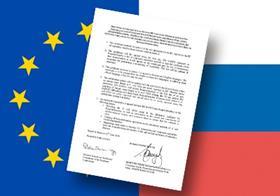
A system of certification introduced by the European Commission at the request of the Russian authorities to monitor shipments of fresh vegetables from the EU to Russia will continue to be implemented for ten days after the last reported case of human illness linked to E coli O104, the strain responsible for the recent outbreak in Europe, Eurofruit has learned.
In a protocol document signed by Europe's Director-General for Health and Consumers (DG Sanco), Paola Testori Coggi, and Gennady Onishchenko, head of Russia's consumer watchdog Rospotrebnadzor, it was agreed that the certification system would be applied 'until the end of a 10-day period during which no human cases linked to E coli O104 are newly reported by EU Member States authorties'.
As part of the agreement, which has seen Russia lift its recent blockade on all fresg vegetable imports from the EU, DG Sanco will inform Rospotrebnadzor as soon as there have been no new cases linked to E coli O104.
During a 10-day period starting that day, DG Sanco has committed to providing Rospotrebnadzor with daily updates – should there be no newly reported cases during that period, the temporary system of certification will be repealed.
On Thursday 23 June 2011, the World Health Organization announced 105 new cases and three further deaths linked to the outbreak, which has now been linked to German beansprouts.
Those figures bring the total number of deaths as a result of the outbreak to 42, with more than 3,800 individual cases of related illness noted.
Paperwork
In the meantime, the amount of paperwork and administration necessary for Europe's fresh vegetable exports to gain entry to the Russian market has been significantly stepped up.
Now that DG Sanco has delivered to its Russian counterparts an approved list of European food safety authorities and testing laboratories, certifcates from those approved bodies will have to be submitted in Russian and English at border crossing points with every consignment of vegetables originating from the EU, the protocol said.
'Following our agreement reached today in Moscow regarding exports of EU vegetables to the Russian Federation, I am pleased to forward you the first version of the list of competent authorities and accredited laboratories involved in a specific monitoring of the Shiga Toxin-producing Escherichia coli (STEC) in fresh vegetables,' said Coggi in an accompanying letter to Onishchenko.
The list of authorities submitted alongside the signed protocol document includes the Dutch Food and Consumer Safety Authority (nVWA), Belgium's Federal Agency for the Safety of the Food Chain (FASFC) and Poland's Plant Health and Seed Inspection Service.
Laboratories from those three countries are also listed on the document, including eight from Belgium and one each from the Netherlands and Poland.



